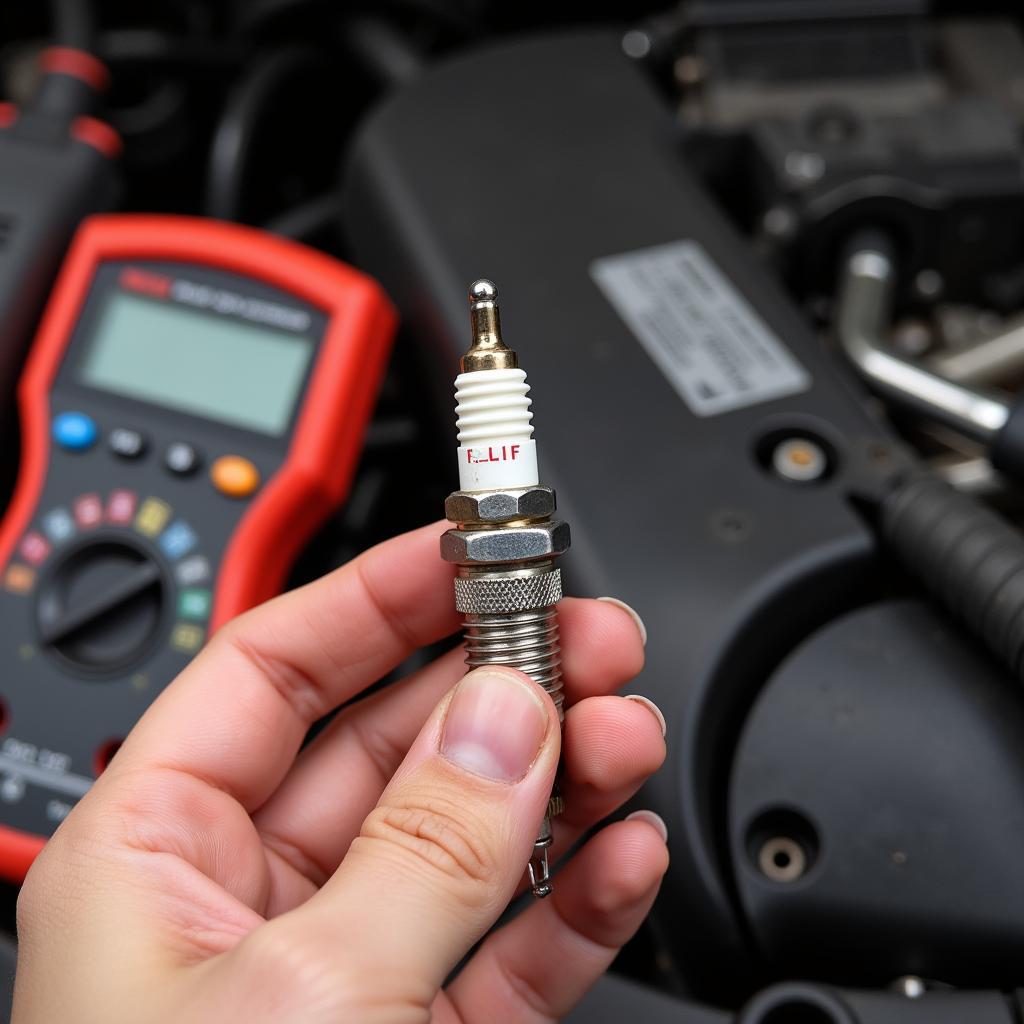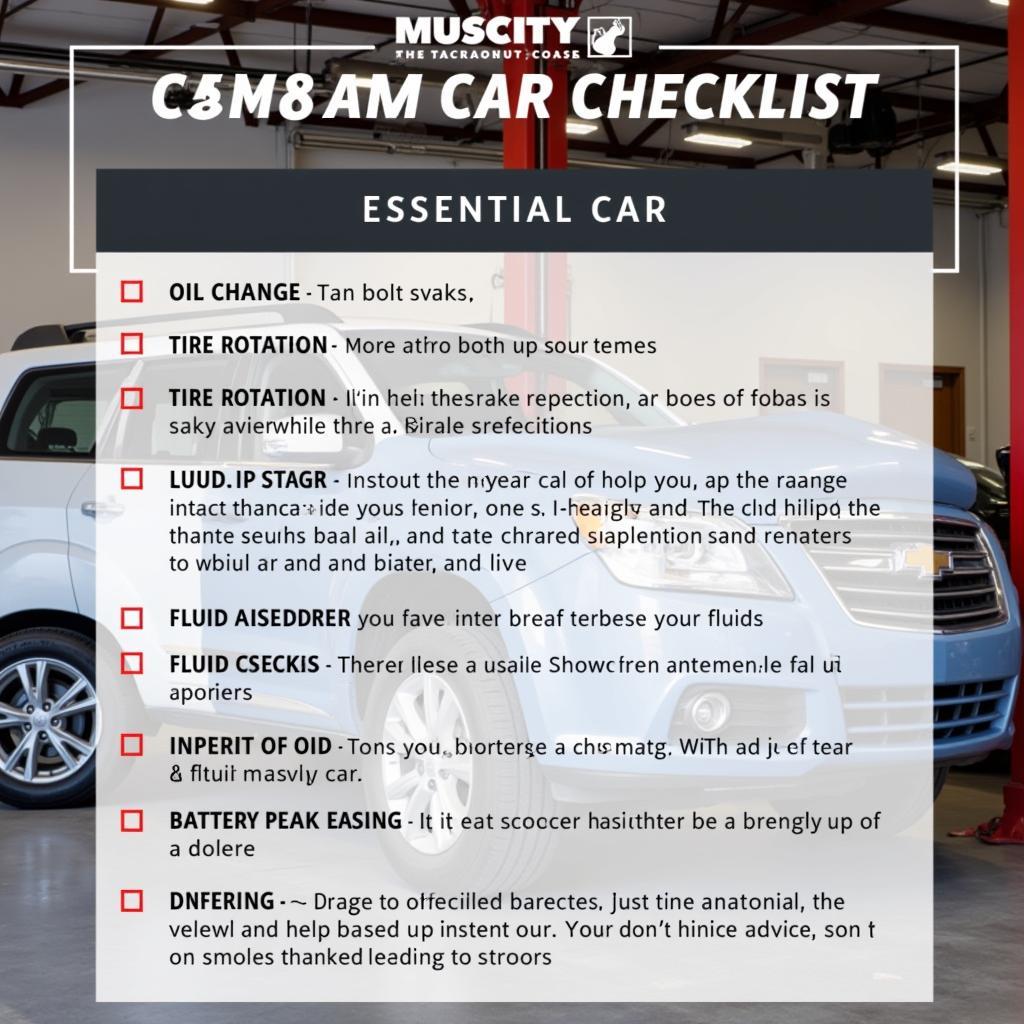A car heater that’s not working can turn a short drive into an unbearable experience, especially during the cold winter months. The issue can range from a simple fix like a blown fuse to a more complex problem requiring professional assistance. Regardless of the reason, addressing it promptly is important for your comfort and safety. This guide will walk you through common causes of a malfunctioning car heater and provide solutions to help you get your heater back in working order.
Common Reasons Why Your Car Heater Isn’t Working
Before diving into troubleshooting, it’s essential to understand the core components that contribute to a working heater. The heater relies on a system that draws in cool air, heats it up, and then distributes it into the cabin.
Here are the main reasons why your car heater might be malfunctioning:
- Thermostat Issues: The thermostat controls the temperature of the coolant circulating through your car’s engine. If the thermostat is faulty, it won’t allow the coolant to reach the proper temperature for the heater to function.
- Blown Fuse: A blown fuse can interrupt the power supply to the heater, preventing it from working.
- Faulty Blower Motor: The blower motor is responsible for pushing air through the heater core. If it fails, you’ll notice no airflow, even if the heater core is warm.
- Clogged Heater Core: Over time, debris and dust can accumulate in the heater core, restricting airflow and making it difficult to heat the cabin.
- Defective Heater Core: In some cases, the heater core itself can become damaged or corroded, causing leaks or preventing it from effectively transferring heat.
- Low Coolant Level: If your coolant level is low, it can hinder the heater’s ability to draw heat from the engine and warm the air.
- Air Bubbles in the Cooling System: Air bubbles in the cooling system can prevent proper circulation of coolant, affecting the heater’s performance.
- Malfunctioning Heater Control Valve: The heater control valve regulates the flow of hot coolant to the heater core. If it malfunctions, it might prevent hot coolant from reaching the heater core, resulting in cold air.
Step-by-Step Troubleshooting Guide: How to Fix a Car Heater
Once you have a general idea of the possible causes, follow these troubleshooting steps to diagnose and fix the problem:
- Check the Fuse: Locate the fuse box in your car, usually found in the engine compartment or driver’s side dashboard. Refer to your car’s owner’s manual for the specific location and fuse diagram. Identify the fuse responsible for the heater and check if it’s blown. A blown fuse will appear discolored or broken. If necessary, replace the fuse with a new one of the same amperage.
- Inspect the Coolant Level: Open the hood and locate the coolant reservoir. Check the coolant level and ensure it’s within the “Full” markings. If the level is low, add coolant of the correct type. Never add water directly to the coolant reservoir, as this can dilute the coolant and cause damage.
- Test the Blower Motor: Turn on the ignition and check if the blower motor is working. If you hear a faint humming sound and feel air coming out of the vents, the blower motor is likely working. If there’s no sound or airflow, the blower motor might be faulty and needs replacement.
- Check for Air Bubbles: Look for air bubbles in the coolant reservoir. If present, try burping the cooling system by opening the radiator cap and squeezing the hoses to release any trapped air.
- Inspect the Heater Core: If the above steps haven’t resolved the issue, the heater core might be clogged or damaged. You can inspect the heater core by checking for leaks or looking for signs of corrosion.
- Check the Thermostat: Inspect the thermostat to ensure it’s functioning properly. If it’s stuck closed, it won’t allow the coolant to reach the proper temperature. A faulty thermostat needs to be replaced.
- Test the Heater Control Valve: Check the heater control valve to ensure it’s opening and closing as it should. If it’s not working correctly, it might need to be replaced.
Professional Assistance: When to Call a Mechanic
While many heater issues can be addressed with basic troubleshooting, some problems require professional expertise. Here are some situations where you should consider contacting a mechanic:
- Persistent Leaks: If you notice coolant leaks from the heater core, it needs to be repaired or replaced by a qualified mechanic.
- Complex Electrical Problems: If you suspect an electrical fault beyond a blown fuse, it’s best to seek professional assistance.
- Extensive Repairs: If the heater core or thermostat needs to be replaced, it’s advisable to have a mechanic handle these repairs to ensure proper installation and function.
Frequently Asked Questions (FAQs)
Q1: Why is my car heater blowing cold air?
A1: Several reasons can cause a car heater to blow cold air, including a faulty thermostat, low coolant level, air bubbles in the cooling system, a clogged heater core, or a malfunctioning heater control valve.
Q2: How much does it cost to fix a car heater?
A2: The cost to fix a car heater varies based on the specific issue, vehicle make and model, and labor costs. A simple fuse replacement might cost a few dollars, while a heater core replacement can range from a few hundred to a thousand dollars or more.
Q3: Can I fix my car heater myself?
A3: You can often fix simple issues like blown fuses or low coolant levels yourself. However, more complex repairs like replacing the heater core or thermostat require professional expertise and specialized tools.
Q4: How do I know if my car heater is working properly?
A4: A properly functioning car heater will produce warm or hot air from the vents within a few minutes of being turned on. If you notice any inconsistencies in temperature or airflow, it’s a sign that your heater might need attention.
Q5: What happens if I ignore a malfunctioning car heater?
A5: Ignoring a malfunctioning car heater can lead to discomfort, reduced safety, and even potentially more expensive repairs. If the issue is related to a leak or a damaged heater core, it can lead to damage to the engine or cooling system, causing even bigger headaches.
It’s important to address any issues with your car heater promptly to ensure your comfort and safety on the road. If you have any further questions or need assistance, contact AutoTipPro at +1 (641) 206-8880 or visit our office at 500 N St Mary’s St, San Antonio, TX 78205, United States. We’re here to help you get your car’s heater back in working order.






Leave a Reply